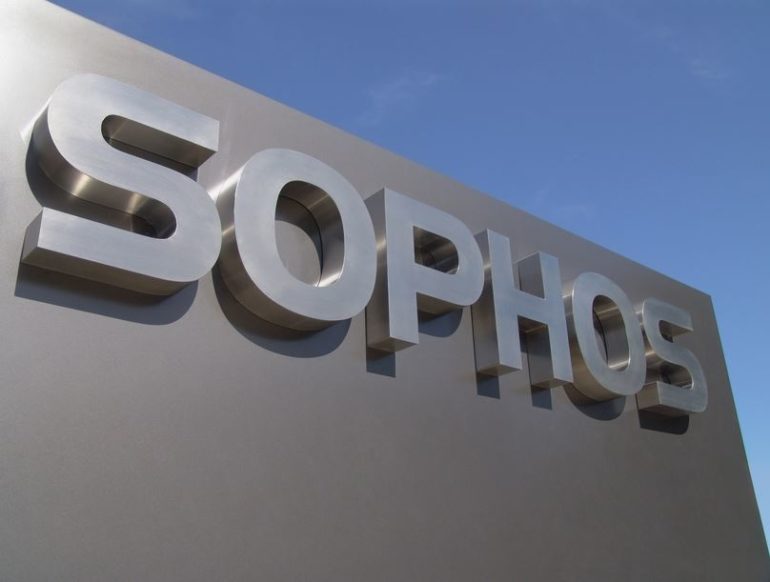Telecom
Sophos Releases 2017 Malware Trends, Prediction

By peter oluka
From online gaming, to mobile apps and wearable tech, technology is used at almost every touch point in people’s day-to-day lives. However, the downside of living in this hyper-connected society means that people are also extremely vulnerable to cyber-attacks.
This year’s Malware Report from Sophos reveals just how malware is being weaved into this everyday technology, and how, year on year, we are seeing cybercriminals become more intelligent in their attacks, making it increasingly important for consumers to be wary of the dangers out there.
Whilst many consumers may live in denial that an attack like this will ever affect them, Sophos’ research revealed the opposite. Harish Chib, VP MEA at Sophos, reviews the most prominent risks from 2017, and what we can expect in 2018.
- The extent of ransomware attacks from 2017
- How online gaming was used to catch consumers off-guard
- The level of malicious Android apps detected this year
- 2018 thoughts and predictions
Sophos 2017 Malware trends and predictions
- Ransomware is on every platform – don’t assume your mobile and tablets are safe
This year, WannaCry shook the world as the cyber hi-jack accounted for more than 45% of all ransomware tracked, closely followed by Cerber at 44.2%, according to Sophos’ most recent Malware Report.
In September alone, 30.4 percent of malicious Android malware processed by SophosLabs was ransomware. Sophos expects this to jump to approximately 45 percent in October. The majority of these attacks have targeted Windows users, but the number of attacks on other platforms is increasing, including those targeting Android, Macs and Linux.
Ransomware attacks have shifted in focus in the past two years, towards industries which are most likely to pay up, such as healthcare, government, critical infrastructure, and small businesses. Due to it being one of the most lucrative industries from ransomware payments or selling medical records, Healthcare has been a big target in 2017 and will without a doubt continue that way into 2018.
- Malware is hiding in Android Apps
When reviewing Google Play, Sophos found that the number of different threats had doubled since last year. One type of malware, dubbed ‘GhostClicker’, sat in Google Play for almost a year, disguising itself as part of the service library. It then request device administration permission, and actively simulated click-on advertisements as it delivered to earn revenue.
One of the more sobering finds was Lipizzan, spyware that infected up to 100 devices. Although this doesn’t sound like a large number, it seems this was a targeted, precision malware, which was designed to monitor phone activity and extracting data from popular apps including email, SMS, location, and voice calls, and media.
Malware such as this is showing no sign of reducing in the future, as cyber criminals know it works. Therefore, in order to combat being a victim of Android malware, Sophos would suggest consumers:
- Stick to Google Play – Although it isn’t perfect, it puts plenty of effort into preventing malware arriving in the first place
- Avoid apps with a low reputation – Be especially wary of this when using a work phone
- Patch early, patch often – Check the vendors attitude to updates
- Online gaming is being used to spread Ransomware and Malware
In terms of online gaming, fake copies of the popular game, ‘King of Glory’ were used to spread ransomware this year. The warning screen used mimicked the one used during the WannaCry outbreak, directing individual to pay the ransom through the China-based Wechat, Alipay and QQ payment methods.
The number of malicious apps has risen steadily in the last four years, peaking at nearly 3.5 million in 2017, therefore we are likely to see this rise further in 2018, including more deceptive online gaming traps.
- Data breaches– they are not going away
The downside of living in this hyper-connected society means that people are extremely vulnerable to cyber-attacks, as shown in the past few weeks with the Uber Hack, which affected 2.7 million riders and drivers. Sadly, we don’t see these data breaches diminishing in 2018, and with GDPR coming into effect in May it will only continue to be a hot topic and something we are continuing to see.
- 2018 and beyond
It’s impossible to predict what will happen in 2018, however it’s a fair bet that Android and Windows will continue to be heavily targeted with ransomware and other Malware. Email will also remain the primary attack vector threatening corporate cyber security, especially in the case of targeted attacks.
Four trends that stood out in 2017, and will likely dominate 2018 are:
- A ransomware surge fueled by RaaS and amplified by the resurgence of worms;
- An explosion of Android malware on Google Play and elsewhere;
- Continued efforts to infect Mac computers; and
- Ongoing Windows threats, fueled by do-it-yourself exploit kits that make it easy to target Microsoft Office vulnerabilities.
Telecom
Vitel Wireless, Nigeria’s First MVNO to Launch Operations This Quarter

Vitel Wireless, a mobile virtual network operator (MVNO), which recently made history as the first operator in Nigeria to be allocated a mobile number series by the Nigerian Communications Commission (NCC) is set to launch operations this quarter.

This is sequel to announcement by Wireless Technology Labs (WTL) that t has built the network of Vitel Wireless, and enabled overseas roaming, in preparation for Vitel’s launch.
Vitel Wireless, which is headquartered in Lagos, was licensed by the NCC in 2023 and will be the country’s first MVNO.
Its launch is set to shake up Nigeria’s telecoms market with Vitel offering an alternative to the services of the country’s four major operators—MTN, Airtel, Globacom and 9Mobile.
Vitel’s network will go live in Nigeria’s major cities first and then expand nationwide.
Pricing will be competitive for basic services like voice, SMS and data and Vitel will also focus on value added services like location-based services (LBS) and IOT.
Vitel Wireless is building Experience Centres in Lagos, Abuja, Enugu, Port Harcourt, Kano and Nigeria’s other major cities where customers can purchase SIM cards.
In addition, Vitel is building a distributor network with SIM cards available through retail channels and online subscriptions using eSIMs.
WTL has already completed the integration of Vitel’s infrastructure with the network of a major MNO and has also enabled international roaming using its proprietary advanced core systems.
This means that Vitel will be able to launch as soon as the NCC approves its network and operational model.
Kenneth Nwabueze, CEO of Vitel Wireless, said “We are going to be offering innovative solutions beyond what the big four operators who have dominated Nigeria’s telecoms market are currently offering. We are investing heavily in our operations, and our work with WTL will enable us to launch in Q2, 2025”.
WTL, which is headquartered in Belgium, has been active in Nigeria and across Africa for more than 20 years working with operators of all sizes to rollout both urban and rural networks. Its work has garnered widespread recognition and industry awards.
WTL has already enabled the networks of two of the 46 new MVNOs licensed by the NCC, and recently announced that it is working with Nigeria’s first Mobile Virtual Network Enabler (MVNE) which is constructing new mobile network infrastructure to provide capacity for emerging MVNOs through its Platform as a Service (PaaS) model.
Mr. Satya Mekala, CEO of WTL, said, “I congratulate The NCC for licensing new operators to improve competitiveness, increase rural coverage and drive the adoption of digital services including Fintech, Edtech, Agriculture, IOT and more. I further thank Vitel for giving us the opportunity to showcase our advanced core technologies and wish them great success in becoming the first ever MVNO in Nigeria”.
Telecom
ipNX Partners NCC to Deepen Broadband Penetration

ipNX, Nigeria’s leading information and communications technology company and connectivity provider is collaborating with the Nigeria Communications Commission (NCC) to explore opportunities for further growth and development policy alignment in support of the Federal Government of Nigeria’s broadband penetration and digital transformation agenda.

The company recently visited NCC at it Abuja office to strengthen the collaborative relationship between both institutions.
The delegation from ipNX, which was led by Ejovi Aror, group managing director, was received by Dr Aminu Maida, executive vice chairman/chief executive officer, Nigeria Communications Commission.
During the visit, the discussions focused on the current state of internet access in Nigeria, the myriad of challenges being faced by service providers, including but not limited to vandalism of key infrastructure and right of way, as well as the regulatory landscape.
The engagement highlighted the shared vision of both institutions to bridge the digital divide and empower Nigerians through reliable and affordable internet connectivity.
As a leading player in Nigeria’s ICT sector, ipNX reaffirmed its unwavering commitment to the realisation of the National Broadband Plan, which aims to achieve 70% broadband penetration this year.
With over two decades of pioneering innovation within the sector, the company has consistently demonstrated resilience across different economic cycles without compromising quality of service and affordable pricing.
Commenting on the visit, Aror, stated, “Our engagement with the Nigeria Communications Commission is a positive step towards shaping the future of telecommunications in Nigeria. At ipNX, we believe that active collaboration with regulators and other key stakeholders is critical to achieving the development targets outlined in the National Broadband Plan. We are proud to continue playing a pivotal role to drive broadband penetration and ensure that every Nigerian, irrespective of their location, has access to the transformative power of the internet.”
The meeting also emphasised the importance of policy alignment and regulatory frameworks that enable innovation, investment, and sustainable growth in the telecommunications sector.
As Nigeria continues to make strides in its digital transformation journey, ipNX stands ready to leverage its expertise, infrastructure, and partnerships to support the realisation of the government’s broadband penetration objectives.
The company remains dedicated to empowering individuals, businesses, and communities through cutting-edge technology and unparalleled connectivity solutions.
Telecom
Truecaller Surpasses 450m Users, Expands Global Reach

Truecaller, the popular caller identity app, announced that it surpassed 450 million users earlier this week, expanding it’s global reach.

The company added 50 million users in the past 10 months, including 15.5 million since the beginning of 2025.
Leadership Changes and Market Expansion
India remains Truecaller’s largest market, a factor reflected in the company’s recent leadership decision.
Following the decision of its co-founders to step back from daily operations last year, Truecaller appointed Rishit Jhunjhunwala, previously the Chief Product Officer and MD of India operations, as the new CEO.
While India continues to be a key market, Jhunjhunwala noted that the company is seeing rapid growth in other regions.
“We are proud that we now serve more than 450 million users globally. As before, we continue to see steady growth in our largest market, India, but the fastest relative growth is in markets outside of India.
“So far in 2025, we see strong growth trends in Latin America, South Africa, Kenya, Nigeria, Malaysia, and the US,” Jhunjhunwala wrote in a blog post.
Regulatory Challenges in India
Despite its dominance in India, Truecaller faces potential challenges as the country’s telecom department pushes for mobile carriers to implement a government-backed caller ID system.
This move could introduce competition to Truecaller’s services in one of its most crucial markets.
Financial Performance and Market Position
Truecaller maintained an active user base of nearly 430 million throughout Q4 2024. The company reported strong financial results for the quarter ending in December, with:
Net sales increasing by 23% year-over-year
Profit after tax rising by 29%
Stock price up more than 33% year-to-date
Product Enhancements and AI Integration
Earlier this year, Truecaller improved its caller ID functionality for iOS, overcoming previous limitations imposed by Apple’s operating system.
The company has also been expanding its offerings beyond caller identification by introducing:
Call recording and transcription features
An AI-powered assistant for call screening
Enhancements to its SMS and chat functionalities
With these advancements, Truecaller aims to solidify its position as a comprehensive communication platform while navigating competitive and regulatory challenges.

 News3 days ago
News3 days agoNIPSS Projects Petrol Prices to Hit ₦750/Litre Before Year’s End!

 E-Financial3 days ago
E-Financial3 days agoFidelity Bank Reports N385.2Bn Pre-Tax Profit for 2024

 E-Business3 days ago
E-Business3 days agoNIMC Says NIN Mandatory to Government Loans

 General News3 days ago
General News3 days agoFinancial Cyberthreats Report Reveals 3.6Ttimes Surge in Mobile Banking Malware

 News3 days ago
News3 days agoFG to Create 1m Technology Jobs – Minister

 E-Financial3 days ago
E-Financial3 days agoNew Investment Law Empowers SEC to Obtain User Data from Telcos

 E-Business3 days ago
E-Business3 days agoAfrica’s Data Workers are Being Exploited by Foreign Tech Firms – Report

 E-Financial3 days ago
E-Financial3 days agoPonzi Operators Risk 10-Year Jail Term, N20m Fine – SEC



























